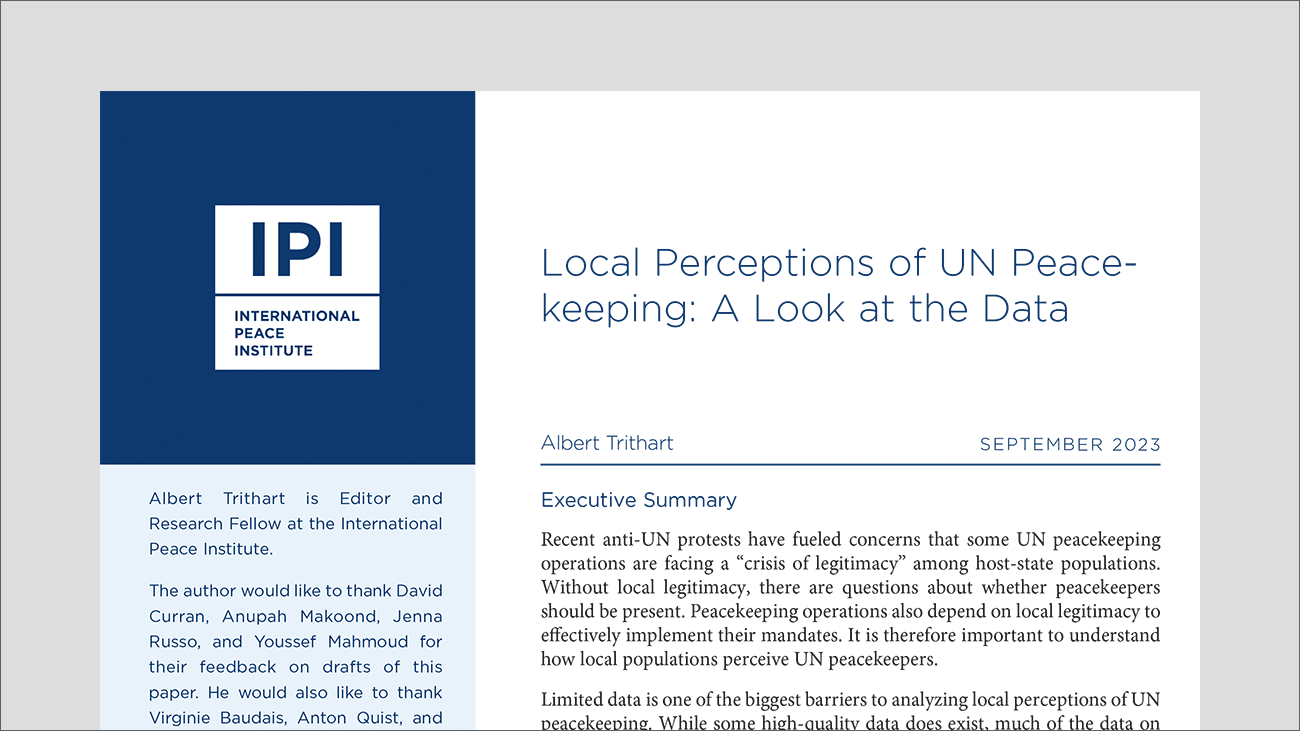
Recent anti-UN protests have fueled concerns that some UN peacekeeping operations are facing a “crisis of legitimacy” among host-state populations. Without local legitimacy, there are questions about whether peacekeepers should be present. Peacekeeping operations also depend on local legitimacy to effectively implement their mandates. It is therefore important to understand how local populations perceive UN peacekeepers.
While researchers have studied local perceptions within specific peacekeeping contexts and compared historical data on local perceptions in past peacekeeping operations, few have compared recent data on local perceptions of current missions. This article therefore explores existing data on local perceptions of the four current multidimensional UN peacekeeping operations: the missions in the Central African Republic (CAR), the Democratic Republic of the Congo (DRC), Mali, and South Sudan. This data points to several cross-cutting insights that could help inform conversations around local perceptions of UN peacekeeping.
The paper concludes that there is wide variation in perceptions of peacekeepers, both between and within peacekeeping contexts and across time. This means that it rarely makes sense to talk about UN peacekeeping operations having or lacking “legitimacy.” Instead, they have multiple “legitimacies.” Understanding the factors behind these legitimacies requires better data on and nuanced analysis of local perceptions.







